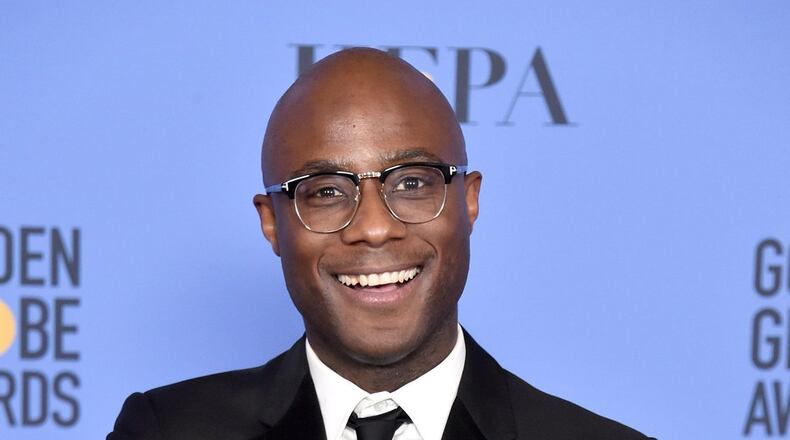Barry Jenkins never expected his film “Moonlight” — about a young black boy growing up in the Liberty City neighborhood of Miami, grappling with his sexuality — to be an industry darling. But after it took the industry by storm, and nabbed the top dramatic film prize at the Golden Globes earlier this month, “industry darling” is an understatement.
Moments after the news broke that “Moonlight” was nominated for eight Academy Awards — including best picture, director, supporting actor (Mahershala Ali) and actress (Naomie Harris), cinematography (James Laxton), original score (Nicholas Britell), adapted screenplay (both Jenkins and McCraney) — Jenkins spoke with The Times about the honors.
Q: How does it feel? You’ve got a couple nominations for yourself and eight total for the film.
A: It feels good. You know me, I'm always working so I'm in Amsterdam right now, so I don't have the 5:20 in the morning feeling. (laughs) But, I was thinking about this. (Playwright) Tarell (Alvin McCraney) and I are basically this kid. When you watch this movie, you don't think that kid is going to grow up and win a Golden Globe, or make a movie that gets nominated for eight Academy Awards. But now I guess I have to consider that is a real possibility. Look at where we are. It's humbling.
Q: Talk to me more about this idea of possibility. I’m sure many people didn’t expect “Moonlight” to take the industry by storm.
A: We didn't make the movie with any expectations. I remember being at Telluride and Toronto and getting this first inkling that people were seeing something that they didn't expect to see and, because of that, it was moving them in a way that they, and us, couldn't anticipate.
It’s been this very grass-roots thing. People see the movie and they tell someone. I think these nominations this morning are just proof positive that enough people told a friend.
Q: You’ve spoken so much about creating a very specific story, ignoring the idea of universality. How do these nominations give credence to that idea?
A: I think it shows that it's one thing to invite an audience in, which I think we did. But once we did, we don't try to show them things we anticipate they need to or want to see. I do think audiences, at least with this film, respect that. I give it up for the audience because they have been willing to walk a mile in Chiron's shoes. I think they respect that I'm not trying to bring their shoes into my cinema.
Q: You all have a bit of history with your nominations. Editor Joi McMillon is the first black woman to land a nomination in that category.
A: I know. That's my homegirl. I met her my first day of film school. If there is any one of these (nominations) that I teared up a little bit over it was that one because I love Joi like a sister and I respect her work. It makes me very proud of the work she did to see that I'm not the only one. Clearly all these folks in the academy respected the work she did as well.
Q: How you are celebrating tonight?
A: There's a bottle of champagne here. Somebody was thinking ahead. (laughs) It's not opened yet and I have to put it on ice, but I'm going to have a glass. But just one because I'm here to work and spread the word of "Moonlight."
About the Author
Keep Reading
The Latest
Featured


